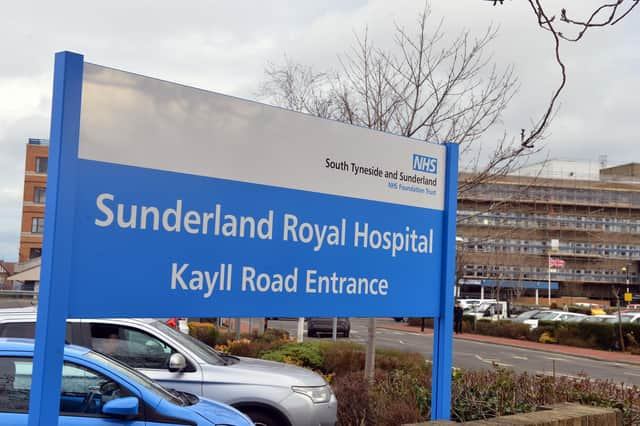Sunderland Hospital scores high for disabled patient care


Just one in six patients with a disability said they were “unhappy” with their care at South Tyneside and Sunderland NHS Foundation Trust – which runs Sunderland Royal Hospital.
The figures come from the annual survey of NHS patients, which shows 83.6% of patients who received care at the Trust last year were happy with their treatment – above the national average of 82.5%.
Advertisement
Hide AdAdvertisement
Hide AdThe Disability Rights UK charity said the figures should give hospital chiefs a "wake-up call to do better" when it comes to caring for patients with a disability.
Rob Common, the Trust's head of quality improvement, said: “We want everyone who needs our help to get the best possible care.
"These results show that nearly 84% of people with a disability were happy with the care they had with us but also show we can do better as we aim for excellence 100% of the time.”
He added: "We will always listen to feedback from those we care for and their loved ones to help us to keep improving and also work with our partners in the community to listen and learn from peoples’ experiences.”
Advertisement
Hide AdAdvertisement
Hide AdThe figures also show 80.6% of dementia patients across the country were satisfied with the level of care they received – rising to 82.3% at the South Tyneside and Sunderland Trust.
The survey also showed the Trust scored 99.7% in its levels of cleanliness, 91.5% in the food and drink served, and 86.8% in the dignity and wellbeing of the patients.
Fazilet Hadi, head of policy at Disability Rights UK, said: “Satisfaction rates nationally should give NHS and independent care providers a wake-up call to do better.
"It is not good enough that one in five people with dementia or a disability are not satisfied with the care they receive."
Advertisement
Hide AdAdvertisement
Hide AdA Department of Health and Social Care said it is supporting social care with up to £7.5bn over the next two years, and health and care staff will also receive learning disability and autism training.